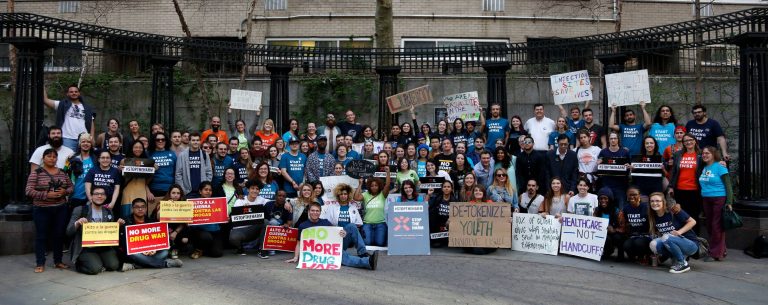Our story: Formation of Paradigma Coalition

The Paradigma Coalition was formed following the 2016 United Nations General Assembly Special Session on Drugs (UNGASS). It was here that a systemic lack of youth advocacy at the United Nations level was noticed.
The Paradigma Coalition was formed following the 2016 United Nations General Assembly Special Session on Drugs (UNGASS). It was here that a systemic lack of youth advocacy at the United Nations level was noticed. A group of connected youth-led drug policy reform and harm reduction organizations decided that things must change. Following on from this, funding was allocated by the Open Society Foundations for a Youth Convening in 2017. Here, our organizations proclaimed the Paradigma Coalition – a global youth coalition for a new paradigm in drug policy.
The Coalition was originally comprised of six organizations – SSDP, SSDP UK, SSDP Australia, Canadian SSDP, Youth RISE and YODA. The coalition has now expanded to over fifteen organizations with our members now spanning every region of the world. In the past three years our work has centered mainly on the annual United Nations Commission on Narcotic Drugs (CND) held in Vienna. We have worked to ensure that there is youth representation from a variety of regions and contexts at CND each year, with members from across the world speaking at our side-events, ensuring the voices of young people most heavily impacted by the War on Drugs are heard at the United Nations.
UNGASS Explainer: The 2016 UN General Assembly Special Session on the World Drug Problem (“UNGASS”) was the largest global meeting on global drug control efforts since the previous UNGASS on drugs in 2009. The outcome of the previous UNGASS resulted in the 2009 Political Declaration and Action Plan for the achievement of a significant reduction in both the supply and demand of drugs. The 2009 Declaration also called for another UNGASS in 2019 so member states can come together and discuss progress on meeting these targets. However, this date was moved forward to 2016 due to increasing awareness that these targets would not be met, as well as the increasing awareness of the harms that the current approach to drugs was having on countries in Latin America. Leading up to the UNGASS several youth-led organisations worked to ensure that young people who use drugs around the world would be present and represented at the meeting. Unfortunately, UNGASS presented a number of issues of accessibility for these youth organizations and they faced a number of issues:
- Despite being informed otherwise, young people were unable to access a number of key sessions despite plenty of space available to them, this was an issue for civil society participants in general.
- A panel about the “Listen First” initiative, just one young person was given time to speak – for 5 minutes at the very end of the panel. There was no time for questions to ask why a panel about listening to young people didn’t include more young people.
- Requests to be put on a speaker’s list during sessions and roundtables to make statements or ask questions were consistently rejected.
While there were some small victories that made it clear that support for the international drug control regime was decreasing, it remained a victory for the status quo. The weak outcome document, adopted on the first day of UNGASS without much debate, did not include much substantial change. Most advocates left UNGASS feeling frustrated and disappointed.
CND Explainer: The Commission on Narcotic Drugs (CND) was established in 1946 as the central drug policy-making body within the United Nations. CND meets annually in March in Vienna. Civil Society has very few opportunities for engagement at the Commission, however, organizations granted official consultative status with the Economic and Social Council (ECOSOC) can organize and host side-events, something Paradigma members have collaborated on in recent years. This is one of the few opportunities young people who use drugs and young people impacted by prohibition have to speak at this level about how the War on Drugs impacts them.
